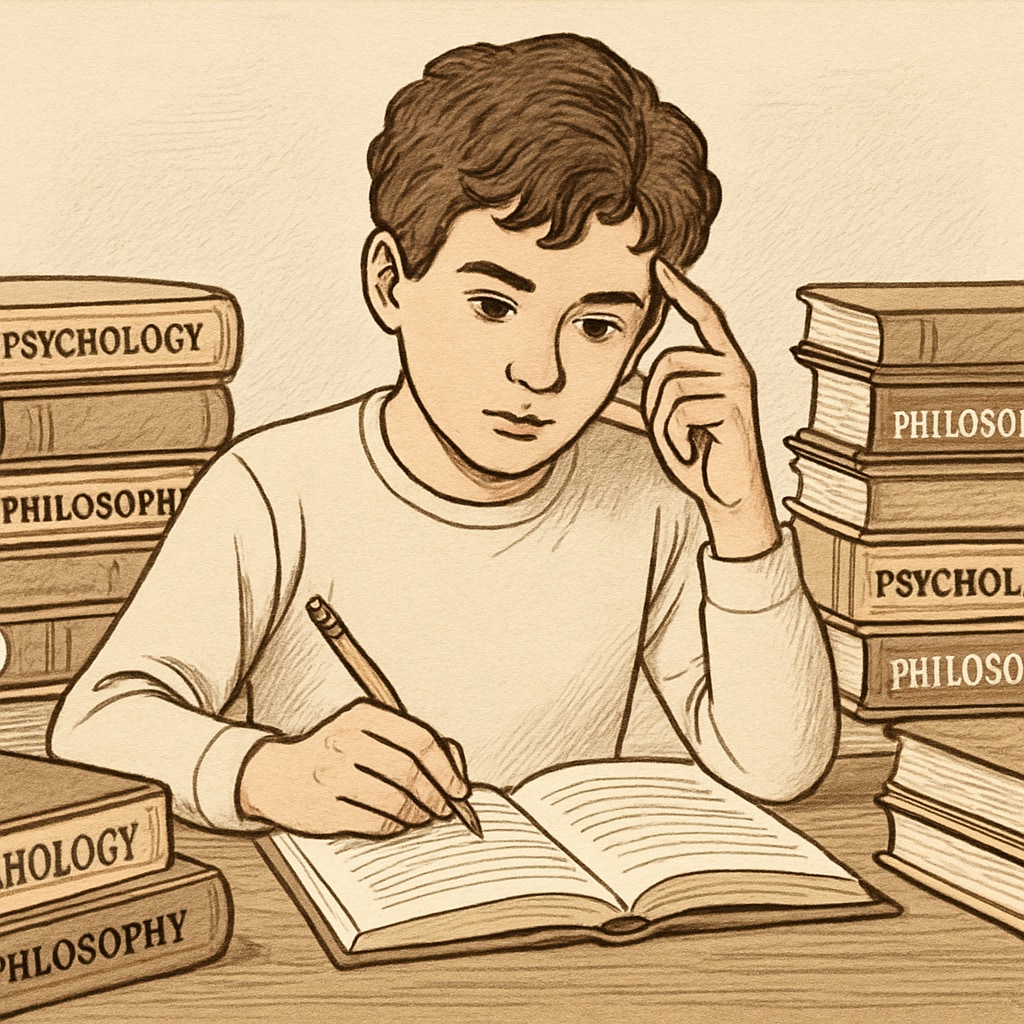Psychology and philosophy are two fascinating fields that help us understand ourselves and the world around us. For K12 students, exploring these subjects through self-learning can be a rewarding journey. In this guide, we’ll provide practical advice and self-learning resources to help students integrate psychology and philosophy into their lives while balancing academic demands.

Why Learn Psychology and Philosophy as a K12 Student?
Psychology teaches us about human behavior, emotions, and the mind, while philosophy challenges us to think critically about existence, ethics, and knowledge. Both subjects equip students with skills that extend beyond the classroom: enhanced emotional intelligence, improved problem-solving abilities, and a deeper sense of self-awareness. For example, understanding psychological concepts such as motivation or stress can help students manage their academic workload more effectively.
Philosophy, on the other hand, encourages students to ask profound questions and evaluate different perspectives. As a result, it nurtures critical thinking—a skill essential for informed decision-making and personal growth.
Practical Tips to Start Your Journey
Starting with psychology and philosophy does not require formal training or expensive resources. Here are some practical tips:
- Identify your interests: Begin with topics that resonate with you, such as mental health in psychology or ethics in philosophy.
- Set aside dedicated time: Balance your study schedule by allocating 30–60 minutes per week to explore these subjects.
- Start small: Begin with introductory books, podcasts, or videos to build foundational knowledge.
- Engage in discussions: Share your thoughts with peers or participate in online forums to exchange ideas.

Top Resources for Self-Learning Psychology and Philosophy
Finding the right resources is crucial for effective self-learning. Below are some beginner-friendly options:
- Books: For psychology, consider Daniel Kahneman’s Thinking, Fast and Slow, or Carol Dweck’s Mindset. For philosophy, start with Bertrand Russell’s The Problems of Philosophy or Will Durant’s The Story of Philosophy.
- Online Courses: Platforms like Coursera and edX offer free beginner courses in psychology and philosophy.
- Podcasts: Listen to shows like Speaking of Psychology (APA) or Philosophy Bites for engaging insights.
- Videos: TED Talks often feature inspiring speakers on psychology and philosophical topics. Check out YouTube channels like CrashCourse and Academy of Ideas.
Balancing Self-Learning with Academic Responsibilities
K12 students often face heavy workloads, so integrating psychology and philosophy into daily life requires effective time management. Here are some strategies:
- Combine learning with leisure: Watch educational videos during breaks or listen to podcasts during commutes.
- Use study techniques: Apply psychological principles like spaced repetition for better retention.
- Make connections: Relate philosophical ideas to real-world events or school subjects, enhancing engagement.
As a result, students can build a solid foundation in psychology and philosophy without feeling overwhelmed.
Final Thoughts
Embarking on the journey of self-learning psychology and philosophy is an excellent way for K12 students to develop critical thinking, emotional intelligence, and a deeper understanding of the world. By leveraging practical tips and accessible resources, young minds can enrich their intellectual and personal growth while maintaining academic balance. So, why wait? Dive into the world of psychology and philosophy today and explore the endless possibilities!
Readability guidance: Use short paragraphs, lists, and clear transitions to ensure the content is engaging and easy to follow. Avoid overly technical jargon and keep the language accessible for K12 students.


